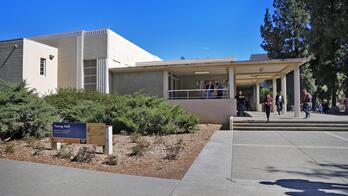Neurobiology and the Development of Depression in Mexican-origin Youth
This study examines the neurobiological bases of depressed mood and depressive disorder in a subset of 280 participants from the California Families Project. Our study uses fMRI brain imaging and physiological (e.g., heart rate, skin conductance) measurements to assess the neurobiological processes that underlie reactivity to emotional, social, and reward cues. We also examine how sociocultural and economic adversity contribute to the development of depression problems. Our goal is to understand how interactions among multiple biological systems and social-contextual factors lead to the development of depression problems in Mexican-origin youth.
We have completed two fMRI and physiological assessments, one when the youth were 17 years old and the second when they were 19 years old. fMRI scans were obtained while the participants engaged in a variety of tasks, including Cyberball, the Monetary Incentive Delay task, the Faces Emotion task, and the Emotion Go/No-Go task. Physiological markers of autonomic, endocrine, and immunological activity were obtained at the age 17 and 19 assessments.
We received additional funding to collect a new wave of data when the CFP youth were approximately 25 years old (Wave 13). The aims of this new study are to examine how early adversity influences the development of depression in young adulthood, determine whether brain function can explain the negative impact of early adversity, and identify protective factors that buffer Mexican-origin youth against the effects of adversity.
This project was funded by the National Institute of Mental Health and the William T. Grant Foundation. The PIs for the age 17 and 19 assessments are Drs. Amanda Guyer (UC Davis) and Paul Hastings (UC Davis). The PIs for the age 25 assessment are Drs. Richard W. Robins (UC Davis) and Johnna Swartz (UC Davis).
We have completed two fMRI and physiological assessments, one when the youth were 17 years old and the second when they were 19 years old. fMRI scans were obtained while the participants engaged in a variety of tasks, including Cyberball, the Monetary Incentive Delay task, the Faces Emotion task, and the Emotion Go/No-Go task. Physiological markers of autonomic, endocrine, and immunological activity were obtained at the age 17 and 19 assessments.
We received additional funding to collect a new wave of data when the CFP youth were approximately 25 years old (Wave 13). The aims of this new study are to examine how early adversity influences the development of depression in young adulthood, determine whether brain function can explain the negative impact of early adversity, and identify protective factors that buffer Mexican-origin youth against the effects of adversity.
This project was funded by the National Institute of Mental Health and the William T. Grant Foundation. The PIs for the age 17 and 19 assessments are Drs. Amanda Guyer (UC Davis) and Paul Hastings (UC Davis). The PIs for the age 25 assessment are Drs. Richard W. Robins (UC Davis) and Johnna Swartz (UC Davis).

